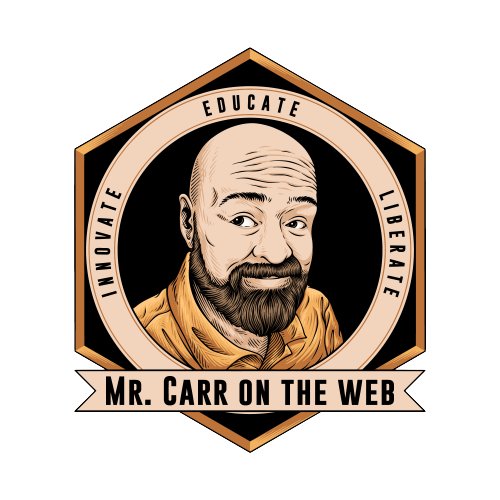Winter is Coming: The Struggles, Visions, and Potential for Personalized Education in a Changing Landscape
A Dive into Professional Development, Personalization, and the Power of AI in Modern Education
For more on this topic, listen to Episode 2: Winter is Coming
As educators, we always look for ways to improve our craft and serve our students better. But let's face it, not all professional development (PD) is created equal. In episode 2 of the podcast What Teachers Have to Say, we take a deep-dive into the world of PD, exploring its challenges, the lack of vision in some programs, and the potential for personalized education in a rapidly changing landscape. We also discuss the role of artificial intelligence (AI) in revolutionizing the way we teach and learn. So, let's embark on this journey through PD, personalized learning, and AI, as winter is coming and the educational landscape is changing.
Challenges of Professional Development
For many educators, PD can feel like a necessary but uninspiring chore. We often find ourselves sitting through hours of lectures or presentations that feel disconnected from our daily practice or that focus on topics that need to be more relevant to our needs. This "one-size-fits-all" approach to PD can leave us feeling frustrated, unfulfilled, and even demotivated. The lack of vision in some PD programs can also contribute to a sense of stagnation in our educational practices, as we need to be given the tools or inspiration to innovate and adapt to the changing needs of our students.
The Need for Personalized Education
As educators, we understand that our students are unique individuals with diverse needs, interests, and learning styles. So, why shouldn't our PD reflect this diversity as well? A personalized approach to education, both for teachers and students, can create a more engaging and practical learning experience. This approach acknowledges that we, as human beings, have different needs to be successful, feel good about our careers, and heal on the inside. By tailoring our PD and instructional practices to meet these diverse needs, we can create a more supportive, empowering, and fulfilling educational environment for all.
The Power of AI in Personalized Learning
The rise of AI in education has opened up new possibilities for personalized learning. AI-powered tools, such as chatbots, can help educators create individualized lesson plans, track student progress, and provide real-time targeted feedback. These tools save time and may allow educators to better meet their students' needs. For instance, AI can help create personalized credit recovery programs for struggling students, giving them a chance to succeed in a way that traditional, packet-based work might not have facilitated.
Furthermore, AI can help educators find new and innovative ways to engage their students. By analyzing student interests and learning preferences, AI can suggest relevant, engaging content and activities catering to individual student needs. This enhances the learning experience and helps build a stronger connection between students and their learning material.
The Role of Vision in Shaping the Future of Education
As the educational landscape continues to evolve, it's crucial for educators, administrators, and policymakers to have a clear vision of what they want to achieve. This vision could prioritize personalized learning, acknowledging teachers' and students' diverse needs and preferences. By embracing a personalized approach, we can create a more inclusive and equitable education system that truly empowers all learners.
The Importance of Bottom-Up Change
While top-down policies and initiatives can drive change, it's essential to recognize the power of bottom-up change in shaping the future of education. As frontline experts in their field, educators have unique insights into the challenges and opportunities in the classroom. We can create a more sustainable and impactful change in the educational landscape by encouraging and empowering teachers to take ownership of their PD and instructional practices, and creating systems for this change in districts that favor a top-down approach.
To support this bottom-up change, schools and districts should focus on providing educators with access to resources, tools, and support networks that enable them to explore and implement personalized learning approaches. This can include facilitating collaboration between teachers, offering ongoing training in using AI-powered tools, and encouraging experimentation and innovation in the classroom.
Building a Culture of Lifelong Learning
As we look toward the future of education, it's essential to foster a culture of lifelong learning that values continuous growth and improvement. By embracing a growth mindset, educators and students can approach new challenges with curiosity and resilience, viewing them as opportunities to learn and grow. This shift in perspective can profoundly affect the overall educational experience, promoting a more positive and engaged learning environment.
To cultivate this culture of lifelong learning, schools, and districts should prioritize PD that equips teachers with practical skills and encourages reflection and self-improvement in lieu of product-specific platforms. This can include workshops on foundational pedagogies, mindfulness, and emotional intelligence, which can help educators develop a deeper understanding of themselves and their students.
Conclusion
Winter is coming, and with it, a new era in education. As we face the challenges and opportunities presented by this changing landscape, it's crucial to prioritize personalized learning, embrace the potential of AI, and empower educators to drive bottom-up change. By doing so, we can create a more inclusive, equitable, and engaging educational experience for all.
Through the lens of this episode, we've explored the struggles, visions, and potential for personalized education in the context of professional development. We can help educators feel more engaged, supported, and inspired by embracing a more tailored approach to PD. Furthermore, by leveraging AI-powered tools, we can make personalized learning more accessible and efficient for teachers and students.
As we move forward into this brave new world of education, let us keep our sights set on the horizon with a clear vision of what we want to achieve. By working together, we can create a brighter, more empowering future for all learners, preparing them for challenges and opportunities.
